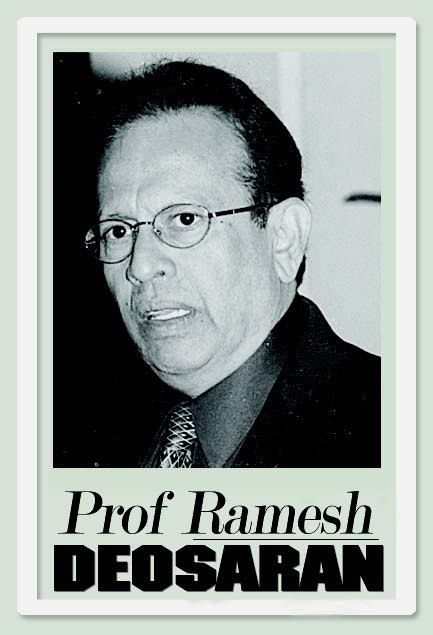Siparia school disaster

Disaster. This is described as a “complete failure, a great or sudden misfortune.” From news about school delinquency, management failures, institutional inefficiency and ministerial lapses affecting Siparia West Secondary School, there is no better word to describe that situation. While admitting failures, the Education Minister went “PR” again, saying ,“This school does not reflect the entire education system.”
However, later on he declared: "There are other schools that are on our radar.” Indeed, there are many other schools which have shown signs of heading the Siparia way but, wisely or not, kept from being publicly uncovered. That is, until, the lid blows off. It is indeed sorry to hear the Siparia story because the well-known connection between school delinquency, teachers’ frustrations, school mismanagement etc, supplies much of the crime and prison inmates our society faces. Is PM Dr Rowley really aware of the widespread school breakdown and mismanagement?
Calling for accountability, an editorial declared: “The Ministry of Education cannot wash its hands of the matter as Minister Anthony Garcia attempted to do by blaming the Teaching Service Commission. Why was the problem not nipped in the bud?” (Express, June 6)
Sensing the potentially dangerous increase in school violence and delinquency across many schools in the country, and seeking to “nip it in the bud,” the Ministry of Education in 2002 (also 2004-8) requested me to examine (phase one) school management, student discipline, parent-teacher relationships, teacher concerns, etc, at 30 secondary schools and make actionable recommendations – 20 high risk; ten mixed government and denominational. (Briefly, some 1,200 teachers and over 5,000 students sampled. Data-driven reports with over 50 recommendations presented to ministry; individualised school-based report presented to each school through power point, etc.)
With the full cooperation of the principal and teachers, our research team collected the concerns and suggestions for improvement from them, paying special attention to those schools described as “high risk” by the ministry from Mucurapo, Malick, to Siparia, Cedros. We now publish a selection of the Siparia school teachers’ concerns and suggestions. (Report Voices of Teachers – Towards a Culture of Peace and Civility, Education Ministry, 2008, pp 36-38.)
Siparia teachers’ concerns (2008):
1. Parents need to pay more attention to their children’s welfare in school. Parents need to be more accountable for their children’s misbehaviour. You do not see parents at PTA meetings etc, you only see them when they come to complain aggressively about allegations made by their children against teachers.
2. There is a significant amount of disrespect by students for teachers in the school. This requires immediate attention. Students often threaten teachers.
3. There are many teachers who cannot manage classroom disruptions. Teachers need help “to take back the classroom from students” since the situation is near crisis.
4. Teachers’ views as key stakeholders are never taken seriously by school management or the ministry.
5. One teacher indicated that her entire class was “sexually active.”
6. Teachers felt a “great sense of disempowerment” in the school and classrooms. They called for greater rights to impose stricter disciplinary sanctions on delinquent students and better training in classroom management.
Of course, our related reports (with recommendations) revealed parents had their concerns too, ranging from teacher absenteeism, missing classes to mistreating their children.
Two significant data:
(1) When the research team appeared to survey a particular class in Siparia Secondary, the entire class was absent except for two present who said “that is a normal thing.”
(2) In a related survey of 1,200 teachers from the 20 secondary schools, 62 per cent said “sexual deviance such as pornography, sexual intercourse, sexual fondling and kissing on school premises were big problems.”
The final reports to the ministry contained over 50 general recommendations. Each school was provided with its own data-enriched report with actionable recommendations. At a Hilton hotel presentation for stakeholders, the then minister concluded: “This study is the most comprehensive, penetrating and scientific that has been conducted here on the subject.” (June 14, 2004)
A major recommendation accepted by the ministry was the establishment of appropriately-trained school safety officers rather than armed police officers. What happened to that and the other recommendations? Are we going to re-invent another wheel while the children continue to suffer from institutional neglect and wayward temptations? What a disaster in school governance!

Comments
"Siparia school disaster"